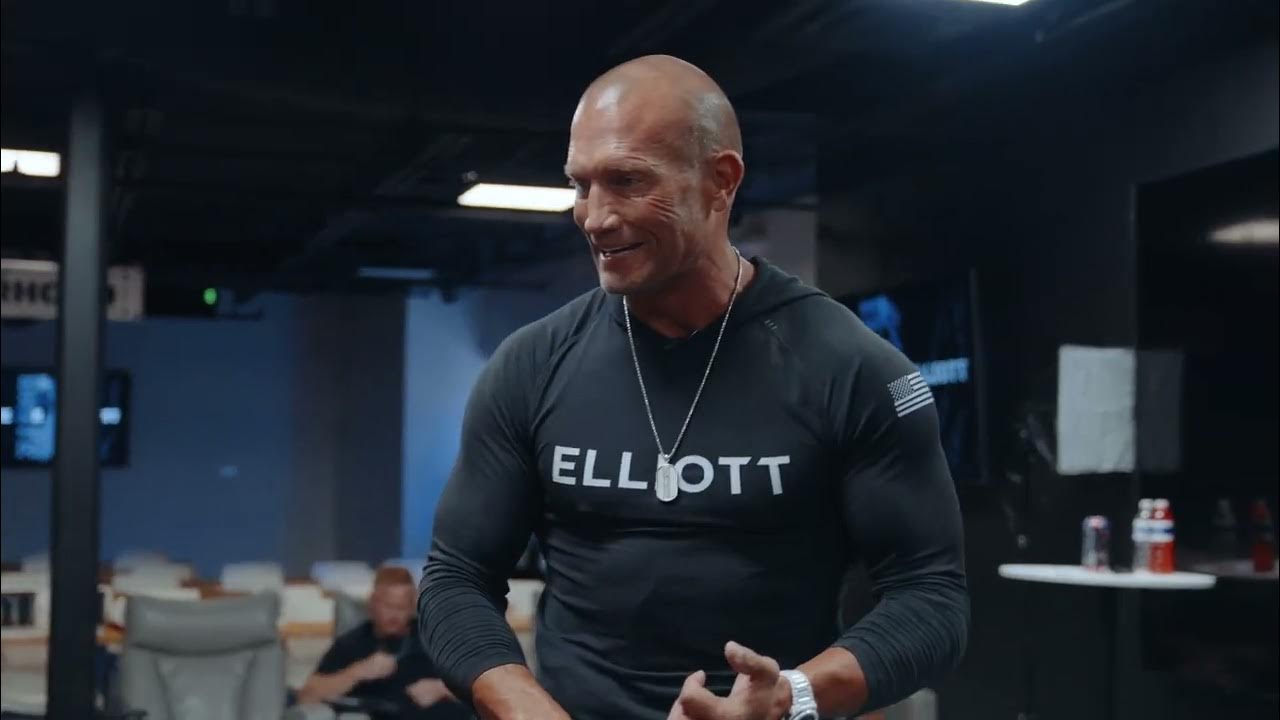Sales Training // 3 Skills to Get a YES Every Time // Andy Elliott
Summary
TLDRIn this video, Andy Elliott shares three powerful keys to securing a 'yes' in sales. He emphasizes the importance of establishing authority by being confident in your posture, speech, and demeanor. He also advocates for framing conversations in a way that leads to agreement, using positive language and questions like 'Would that be fair?' Finally, he stresses the need to understand and leverage the client’s dominant buying motives by asking insightful questions. Elliott's approach focuses on listening and helping, not just selling, to ensure lasting success in sales.
Takeaways
- 😀 Be the authority: Confidence in your posture, speech, and eye contact is key to gaining trust and making people say yes.
- 😀 Frame your words effectively: Use framing techniques to align your words with the client's thinking, ending with a question like 'Would that be fair?' to prompt a yes.
- 😀 Focus on the client's dominant buying motive: Understand the core reasons a client is interested in your offer (e.g., safety, fuel mileage) and use these to drive the conversation.
- 😀 Use the 'Yes Ladder' technique: Start with questions that lead to small, affirmative responses, eventually guiding the client toward a larger yes.
- 😀 Stop selling, start helping: Instead of focusing on pushing a sale, focus on helping the client with their needs, which builds trust and results in yeses.
- 😀 Listen more than you talk: Clients will reveal how to sell to them if you listen carefully to their answers and motivations.
- 😀 Show passion and genuine care: When clients sense that you care deeply about what you're offering, they're more likely to say yes.
- 😀 Establish momentum: Keep the conversation flowing with positive framing and guiding questions, which creates a momentum that encourages a yes.
- 😀 Build rapport by understanding their needs: Ask targeted questions to uncover why the client is considering a purchase and use their answers to drive the conversation.
- 😀 Consistent communication: Andy encourages viewers to reach out for help, reinforcing the importance of providing ongoing value and support to clients.
Q & A
What is the first key to getting a yes from clients, according to Andy Elliott?
-The first key is to be the authority. This means demonstrating confidence through posture, body language, eye contact, and speaking with genuine passion about what you do.
Why is it important to be the authority when trying to get a yes from a client?
-Being the authority builds trust and makes clients more likely to say yes because they believe in your expertise and passion, making them feel that you care about the outcome.
What does Andy Elliott mean by 'framing' in the context of sales?
-Framing involves using specific wording and questions to guide the conversation in a way that leads to a yes. It's about agreeing with the client and then presenting a solution that feels fair to them.
Can you explain the concept of 'dominant buying motive'?
-The dominant buying motive refers to the primary reason a client is interested in making a purchase. It could be anything important to them, such as safety, fuel efficiency, or family needs.
How can understanding a client's dominant buying motive help secure a yes?
-By aligning your offering with their dominant buying motive, you can show the client that what you're offering solves a need or fulfills a desire, increasing the likelihood of them saying yes.
What is the 'yes ladder' and how does it work in sales?
-The yes ladder is a technique where you get the client to agree with you multiple times by asking questions that lead to simple yeses, eventually making them more likely to agree to the final offer.
What role does listening play in getting a yes from a client?
-Listening is crucial because clients will often reveal their true motivations and desires through their answers. By listening, you can tailor your approach to meet their needs more effectively.
What is the significance of framing a conversation by asking, 'Would that be fair?'
-Asking 'Would that be fair?' is a strategic way to close the conversation on an agreement. It encourages the client to agree to a suggestion because it feels reasonable and equitable.
What should salespeople stop doing, according to Andy Elliott?
-Salespeople should stop selling and start helping people. The goal should be to genuinely assist clients in finding what they need, rather than pushing them into a sale.
Why does Andy Elliott suggest texting him for help?
-Andy encourages clients to text him directly so that he can offer personalized support and assistance, emphasizing that he's committed to helping them succeed in their sales efforts.
Outlines

此内容仅限付费用户访问。 请升级后访问。
立即升级Mindmap

此内容仅限付费用户访问。 请升级后访问。
立即升级Keywords

此内容仅限付费用户访问。 请升级后访问。
立即升级Highlights

此内容仅限付费用户访问。 请升级后访问。
立即升级Transcripts

此内容仅限付费用户访问。 请升级后访问。
立即升级浏览更多相关视频

Worlds #1 Unstoppable COLD CALL SCRIPT For CAR SALESMEN // Andy Elliott

Sales Training // The ULTIMATE Strategy To Help You Sell More // Andy Elliott

Sales Training // 5 Steps To RECREATE Yourself for SUCCESS // Andy Elliott

The Art of Mastering a Stranger - LIVE ROLEPLAY // Andy Elliott

I Tested 100 Sales Persuasion Tactics — This One Works EVERY Time | Andy Elliott

How To Persuade ANYONE In Door Sales // Andy Elliott
5.0 / 5 (0 votes)
